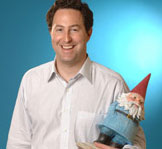Travelocity to Google: Stop dissing multi-million dollar ad clients!

Why Paid Search May NOT Be the Best ROI For Your Incremental Dollar

What’s more, Glueck had a personal message to his fellow advertisers in the room, stand-up and let Google know that advertisers demand to be treated with respect! Glueck conveyed his dismay and frustration that as a multi-million dollar Google advertiser, Travelocity is not provided the transparency and respect that common courtesy and standard business practices call for.
Glueck is leading a challenge to Google: treat multi-million dollar advertisers as partners, not merely writers of large checks to Google, or risk losing million of dollars in ad business.
Glueck specifically referenced Google’s secrecy and lack of communication--such as notification of algorithm changes--which results in Travelocity and other top tier advertisers potentially losing “millions of dollars.”
Glueck oversees marketing activities for Travelocity, including advertising, merchandising, customer experience and design, personalization and CRM, search engine marketing, and editorial content. He has helped turn Travelocity around since he joined the company in 2004 by introducing a new site design, a new logo, a new campaign (based around the lovable "Roaming Gnome"), the Travelocity Guarantee and Customer Bill of Rights, and a new tagline: "You'll never roam alone."
According to Glueck, Travelocity has long been a proponent of search but as of late has been one of a handful of major etailers to raise concerns publicly about falling ROI in search on generic terms and its margins. Gluieck says he has found success by shifting moneys back to traditional TV and print, branding and service differentiation investments as well as new channels like advergaming, online display ad targeting, instant messengers, RSS and more.
Glueck speaks from real-world experience. Travelocity annual ad spend cited:
$25 million on paid search
$100 million total media budget
Glueck called out to his fellow advertisers:
You deserve to be part of a community of advertisers that are knowledgeable about their overall media spends.
Glueck presented a six prong ROI-based plan of action to better optimize paid search:
Separate brand keywords and non-brand keywords for ROI analysis,
Subtract variable costs to calculate variable margins,
Track to the real value per transaction,
Understand the lookback window,
Help us all figure out the clickstream,
Compare all media using multivariate models.
Glueck said that because a company’s “brand spend” is “wildly profitable,” search looks “golden” on the surface. He cautioned against such a belief, however.
Glueck drilled-down on the Travelocity paid search spends:
$500,000 plus per week with a net return of a couple hundred thousand going to the bottom line per week,
Nineteen percent of Travelocity’s $25 million annual paid search spend is on branded terms, which yield 80% of paid search sales or 80% of value generated.
Glueck’s conclusion regarding paid search: “everything else Travelocity is losing money on!”
Glueck discussed the irony that companies find themselves compelled to buy their own brand names. Glueck laments that Google has become a “toll keeper” on brand names.
Glueck underscored that despite its glory, search is not the dominant method for Web sites to gain traffic, or sales.
Seventy-five percent of visits are non-search referrals: direct URL entry, email links, banner ads…Eighty-six percent of sales dollars come from people typing in URLs for direct navigation, he said
Glueck stressed that while search engines deliver reach, they are not always the most efficient source of transaction acquisition. He said that Google and other search engines push advertisers to continually spend more on paid search by touting “self-funding” and portfolio theories.
Glueck likened such self-centered strategies by the portals to gambling casinos enticing people to “leave your profits at the casino.”
Glueck told his fellow advertisers that if they succumb to Google’s self-motivated sales pitches they may end up destroying shareholder value and end up risking their own year-end company bonuses!